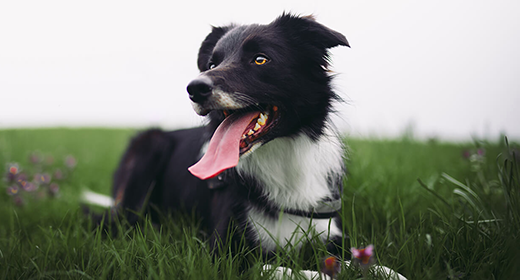

Chicken has been a widely popular and easily accessible source of protein for humans. However, when it comes to our canine companions, the role of chicken is a topic that demands exploration. From its countless health benefits to allergic reactions and dietary sensitivities, understanding the implications of incorporating chicken into a dog's meal plan is crucial for responsible pet care. Delve into the nuances of how chicken can serve as a valuable dietary component for dogs, uncovering the dos and don'ts that can help foster a balanced and nourishing diet for our beloved four-legged friends.
The short answer is yes, chicken is good for dogs. In fact, chicken is a common ingredient in many high-quality dog foods, owing to its rich protein content and relatively low fat. It provides essential amino acids that contribute to muscle development and overall health. However, it is crucial to prepare chicken appropriately for your furry friend as certain seasonings or cooking methods might be harmful.
While dogs are known to be natural carnivores, the consumption of raw chicken raises concerns. Raw chicken can potentially contain harmful bacteria such as salmonella or listeria, which pose health risks for dogs, just as they do for humans.
The consumption of raw chicken might lead to foodborne illnesses and digestive issues, causing vomiting, diarrhoea, or even more severe complications. Therefore, it is generally advised to thoroughly cook chicken before feeding it to your dog, eliminating any potential bacteria and making it safe for consumption.
While the appeal of a raw diet for dogs is gaining traction, the dangers of raw chicken consumption remain a significant concern:
Although rare, some dogs can develop allergies to chicken, resulting in various symptoms such as itching, skin irritation, gastrointestinal upset, and even respiratory issues. Chicken allergies in dogs are typically a response to specific proteins.
Dogs are omnivores, and aside from chicken, they can safely consume various other types of meat as part of a balanced diet.
Considering the risks associated with raw chicken consumption and potential allergies in dogs, seeking veterinary guidance is highly recommended. If your dog exhibits symptoms of an allergic reaction or has consumed raw chicken, a visit to the vet is crucial.
A veterinarian can conduct a thorough examination to identify the nature and severity of the allergic response and provide appropriate treatment options. Additionally, they can address any potential complications resulting from bacterial contamination, including gastrointestinal distress or other related health issues. Early intervention by a qualified veterinary professional can help mitigate the risks associated with food allergies and ensure the well-being of your canine companion.
Remember, the expertise of a veterinarian is essential, especially when it comes to handling food-related concerns. Seeking their advice and treatment can help safeguard your dog's health and prevent any further complications. Prioritising your dog's health and well-being through professional veterinary care can contribute significantly to their overall quality of life and long-term wellness.
Dogs can eat chicken, but the amount chicken should be in moderation, accounting for about 10% of their daily calorie intake, balanced with other nutrients for a complete diet.
Excessive chicken can lead to nutritional imbalances and potential health issues such as obesity or pancreatitis. Moderation is key.
Consumption of raw chicken can expose dogs to harmful bacteria like salmonella, leading to severe gastrointestinal problems, including vomiting and diarrhoea. Immediate veterinary attention may be necessary.




Welcome to our pet care blog, where we delve into the intricacies of fostering the well-being of our four-legged friends. In this edition, we shine a spotlight on a fundamental aspect of puppy care—nutrition. As conscientious pet owners, understanding the role of vitamins in the early stages of a puppy's life is essential for promoting robust health and vitality. In this blog, we study the key nutrients that contribute to the overall development of our furry companions.
During the crucial phases of growth and development, puppies have distinct nutritional needs, and vitamins play a pivotal role in ensuring they thrive. If you are looking for vitamins for puppies in the Philippines, IAMS has you covered with some of the best puppy vitamins in their range of dog supplements.
From supporting bone formation to bolstering their immune systems, each puppy multivitamin contributes uniquely to a puppy’s well-being. A well-balanced diet is paramount for setting the stage for a lifetime of happiness and vitality. Next, let us uncover the essential components that will help you make informed choices to ensure your puppy receives the nutrients necessary for a healthy and vibrant start to life.
Puppy vitamins are essential for the health and development of puppies, just as they are for humans. While a balanced diet is crucial, factors such as rapid growth and specific life stages may necessitate additional vitamin support. In the following section, we will explore the importance of vitamins tailored to the unique needs of puppies, examining how these nutrients contribute to their overall well-being. Understanding the role of vitamins in a puppy's diet can guide pet owners in providing the best possible start for their young companions.
Ensuring your puppy gets the right vitamins is not just about being a nutrition expert, it is about setting the stage for a life filled with tail wags and playful antics. From bone development to a glossy coat, these little powerhouses contribute to your pup's well-being in a big way. Below is a break down the perks with a quick list of pointers that highlight how vitamins can make your puppy's world a whole lot brighter:
Essential vitamins, such as vitamin D and calcium, play a pivotal role in bone development, ensuring that puppies develop strong and healthy skeletal structures during their rapid growth phases. Proper bone formation not only supports their current well-being but lays the groundwork for a lifetime of agility and mobility.
Vitamins like vitamin C and vitamin E contribute to a robust immune system, helping puppies defend against infections and illnesses as they encounter new environments and experiences. A strengthened immune system provides a crucial defence mechanism, aiding in the puppy's ability to adapt and thrive.
B vitamins, particularly B12 and folate, are crucial for neurological development. These vitamins support cognitive function, aiding in the formation of a puppy's developing brain and nervous system. An enriched cognitive foundation sets the stage for improved learning, memory, and overall mental acuity.
Vitamins A and E are essential for maintaining healthy skin and a glossy coat. These vitamins contribute to skin cell integrity and help prevent issues such as dryness and flakiness. A radiant coat not only enhances a puppy's appearance but is indicative of their overall health.
B-complex vitamins, including B1, B2, and B6, are vital for energy metabolism. They help convert food into energy, ensuring that puppies have the stamina and vitality needed for their playful and active lifestyles. A well-regulated energy metabolism supports sustained playfulness and optimal physical activity levels.
Vitamins A and C are critical for maintaining good eyesight. The best puppy vitamins contribute to the health of the eyes and can prevent issues related to vision as puppies grow. Clear and healthy vision is essential for puppies as they explore their surroundings, promoting confidence and safety in their environment.
Adequate vitamin intake supports the overall health and vitality of puppies, promoting a strong foundation for a lifetime of well-being. A balanced vitamin profile ensures that puppies can thrive and enjoy a high quality of life from their early stages onward, setting the stage for a happy and healthy companionship.
Puppy vitamins are like the superheroes of a puppy's well-being. From building strong bones to giving their immune system a boost, these little nutrients play a big role in keeping our furballs healthy and happy.
So, the next time you are picking up doggy treats or deciding on their dinner, remember the power of those vitamins, because a well-fed puppy is a puppy ready for all the belly rubs and adventures you can throw its way.